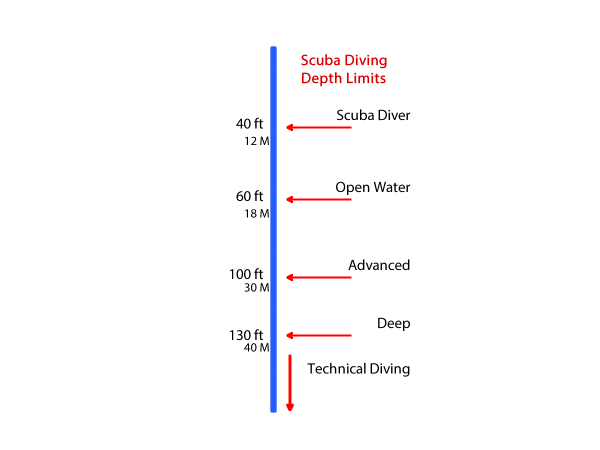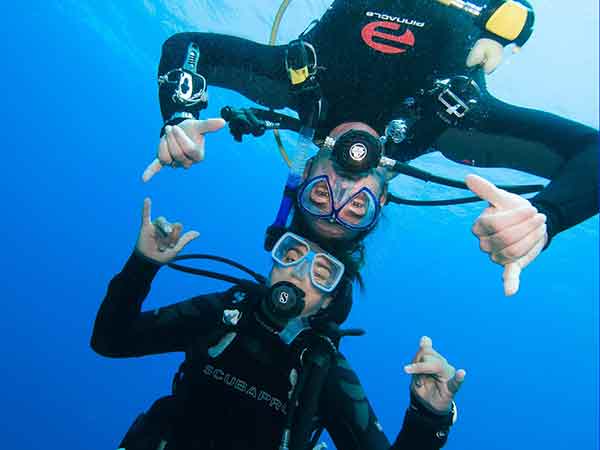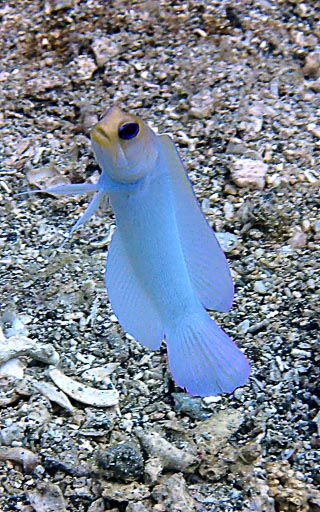When should I take my Advanced Open Water course?
Question:
Am I ready to take my Advanced Open Water Course?
Answer:
Yes, once you have your basic Open Water Certification you are ready.
“Advanced courses of study or qualifications are intended for people who are already skilled or who have a good knowledge of a subject:”
After passing your Open Water Certification you should certainly meet this criteria!
But are you asking yourself the right question?
These are the questions you should be asking yourself:
Do I want to improve my dive knowledge, learn new skills and increase my own personal level of safety?
Do I want to safely dive to a depth greater than 60 ft?
Do I want to learn how to navigate better so I don’t have to rely on someone else to do it for me?
Do I want to experience different types of diving while under the tuition of a professional instructor?
Do I want to learn gas management and planning for dives to 100 ft?
Do I want to become a better diver?
If the answer to most of the above is “yes” then it’s time to take an advanced course.
Can I just stay with my Open Water qualification?
Many divers stay at the level of Open Water Diver, nothing at all wrong with that, they enjoy their diving and have no interest in further training.
If however you wish to enhance your diving skills and open up the deeper dive sites for your diving then you will find Advanced Open Water very beneficial to you.
In recent years the medical insurance limitations of ” only covered to qualified depth” has seen many experienced divers achieve AOW, just for peace of mind.
Summary

The Advanced Open Water course
The Padi Advanced Open Water course is the next logical step from the Padi Open Water Course, you can take this as a relatively new diver, or as a diver with experience. A good Instructor will tailor the course (within standards) to ensure that all levels of diver abilities are enhanced and catered for.
This course is not just about the “in-water” skills, it also accentuates your “thinking skills”, if you are going to become a better diver then the first step is “thinking like a diver” and getting beyond that “buddy check and splash” attitude to diving.
The training is fun and you will enjoy the experience of trying different types of diving.
Insurance Considerations.
An important point you may wish to consider before venturing deeper than 60 ft is that some insurance companies will only cover you to the depth to which you are certified, check this out particularly if your diving insurance is part of a travel plan or credit card cover. Specialist dive insurance is not expensive and has less restrictions











